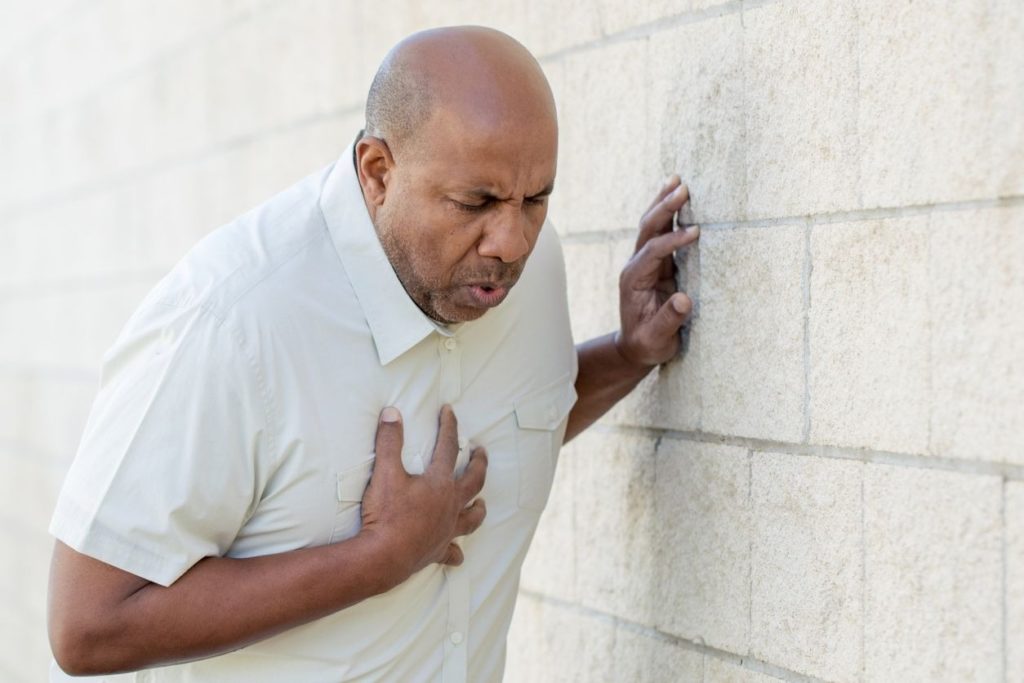Respiratory failure and intense shortness of breath: what to do?
Caution : You must consult your doctor for your health. This page presents only a personal and alternative point of view which should not be considered as an attempt to prescribe medicine.
The practice of an activity, whether it is a daily task or a sport, demands not only the muscles, but especially the breathing.
However, you may find some difficulty in the person in motion due to a lack of air.
It’s about shortness of breath.

This disorder, sometimes trivialized, can be the signal for more serious ailments and even respiratory failure.
This article will discuss what shortness of breath is and how it relates to respiratory failure.
Shortness of breath, what is it?
Shortness of breath is an unpleasant feeling of lack of air that a person experiences after relatively intense or unusual exertion.
It is due to the increased respiratory rate of the person, which will cause a greater demand for oxygen.
Shortness of breath is normal when it occurs in isolation or after particularly strenuous activity.
However, sometimes a person is short of breath at the slightest effort or even without actually soliciting their breath.
In case of severe shortness of breath, it is crucial to see a doctor, as this disorder can hide serious ailments.
Indeed, when it becomes chronic and causes severe pain, for example, shortness of breath is a symptom of more serious illnesses.
Among these diseases are respiratory insufficiency.
What is the connection between respiratory failure and shortness of breath?
By respiratory failure is meant a disorder that reflects the difficulty of the respiratory system to perform its functions.
Indeed, it should be remembered that the respiratory system is responsible for the coordination of respiratory activity, therefore for the delivery of oxygen to the body and for the expulsion of carbon dioxide from the body.
Respiratory failure is generally distinguished into two variants which express the source of the disturbance of the respiratory system.
The first variation is called obstructive respiratory failure and the second is restrictive respiratory failure.
In the first case, it is a blockage of the airways caused by diseases such as:
- asthma;
- chronic obstructive pulmonary disease (COPD);
- emphysema.
The second case is due to a reduction in the capacity of the lungs.
It can be caused by ailments affecting the respiratory pump, a lung problem or a disorder of the respiratory nervous system.
Be aware that respiratory failure can progress if left untreated.
Whether it is the diseases that cause it or the condition itself, it is possible to deal with serious degeneration of respiratory activity.
We can therefore be dealing with acute respiratory failure and in the worst case, respiratory failure will develop into respiratory distress.
It should be noted that the latter form can be fatal.
Several symptoms can be used to recognize respiratory failure.
The first, however, is shortness of breath.
A person with respiratory failure inevitably has difficulty supplying their body with oxygen and therefore sometimes get out of breath even at the slightest effort.
It is therefore advisable to consult in the event of severe shortness of breath and more particularly if the shortness of breath is accompanied by tachycardia or pain.
In conclusion, we can say that shortness of breath is an unpleasant sensation which reflects the difficulty for the body to obtain oxygen.
This disorder, normal when it occurs after exercise, may be evidence of a condition such as respiratory failure or blockage of the diaphragm.
It is therefore important to consult a doctor in case of severe shortness of breath.
However, you can also watch this video workshop which provides expert advice when you have a blocked diaphragm.
❤ The ultimate guide to breathing
Intermittent Breathing : Discover the method to quickly relieve your anxiety and chronic fatigue (positive effects from the first use).Read also :
Previous article : Shortness of breath and lack of iron: is there a link?
Next article : Lump in the throat and stress: what to do?

